
Illustration © Sheri Amsel
Barn swallow: Species at Risk recovery
Gulf Islands National Park Reserve
In Canada, barn swallows (Hirundo rustica) are not nearly as common a sight as they were just a few decades ago. Learn more about this lovely bird and what you can do to help its recovery.
Three reasons to love the barn swallow:
1. It's a beautiful bird
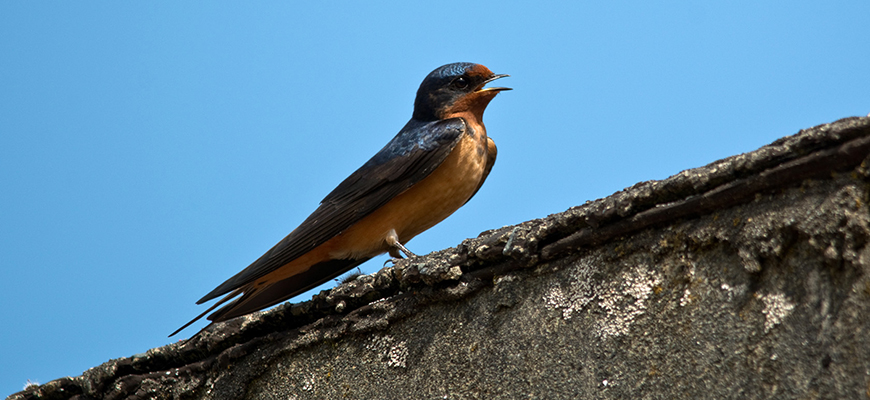
Barn swallows are often depicted on tattoos and valentines. That’s because they are so beautiful. They have long forked tails, rusty-orange underparts and glistening blue backs. When they return in the spring, from as far away as South America, they bring joy to people with their graceful flight.
2. It controls pests naturally
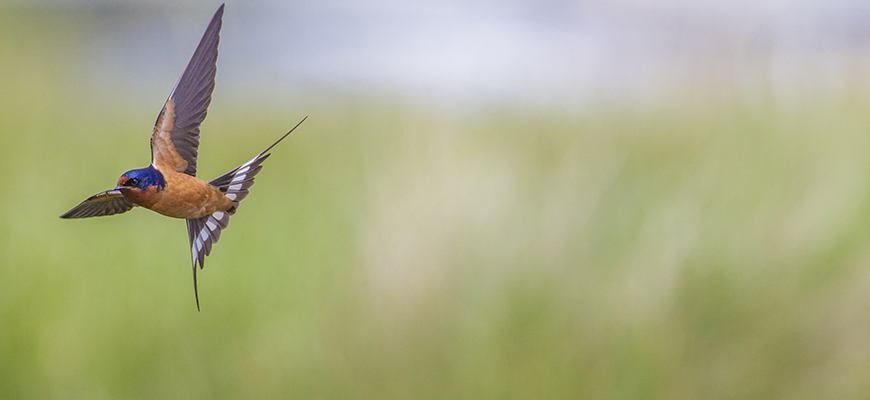
Barn swallows catch insects in the air. During the spring when they feed their chicks, they hunt almost continuously. They gobble up bugs that we consider pesky, like wasps and biting flies. They also help farmers get rid of insects that harm crops and livestock.
3. It needs love
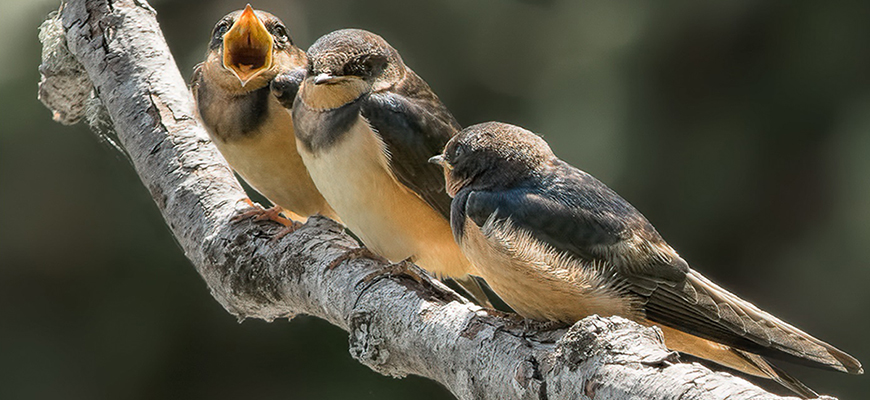
In Canada, barn swallows are in trouble. Scientists aren’t sure exactly why, but they suspect the culprits could include pesticides, habitat loss and climate change. Barn swallows need your help to recover.
Three ways to care for the barn swallow:
1. Share your space
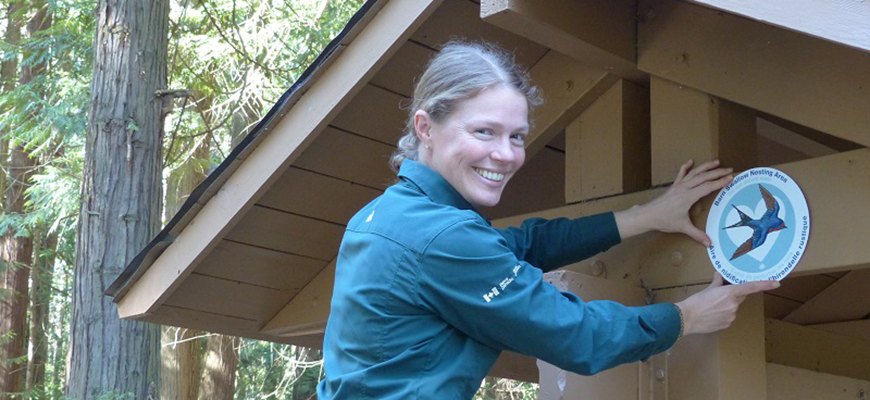
Barn swallows like to build their mud nests in the shelter of human-built structures like houses or barns.
Parks Canada’s action:
In Gulf Islands National Park Reserve, we post signs reminding people not to disturb barn swallow nests.Action you can take:
Keep your distance from nesting barn swallows. Download and print your own signs for barn swallow nests on your property.
Free downloadable barn swallow nesting sign
2. Scoop the poop
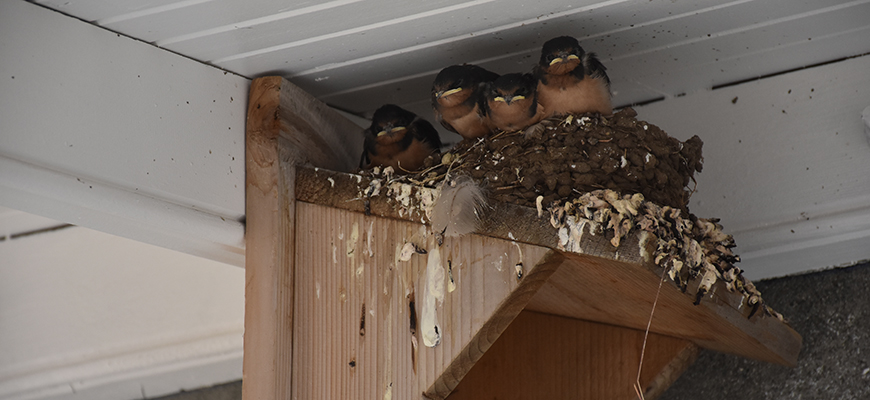
Nobody likes bird poop, especially when it piles up on a patio or deck. You might even be thinking of getting rid of a barn swallow nest to eliminate the poop problem. Don’t do it!
Barn swallow chicks stay in the nest for 18-23 days. Around day 12, the chicks start to defecate over the edge. That means that you only have to deal with the mess for 6 to 11 days a year. Maybe twice that if the birds have a second brood.
Parks Canada’s action:
At Gulf Islands National Park Reserve, we found that placing cardboard or a pile of sand under the nest makes for easy clean-up.Action you can take:
Use our method of placing cardboard and sand under the nest. Remember to use gloves when cleaning up!
3. Put out the welcome mat
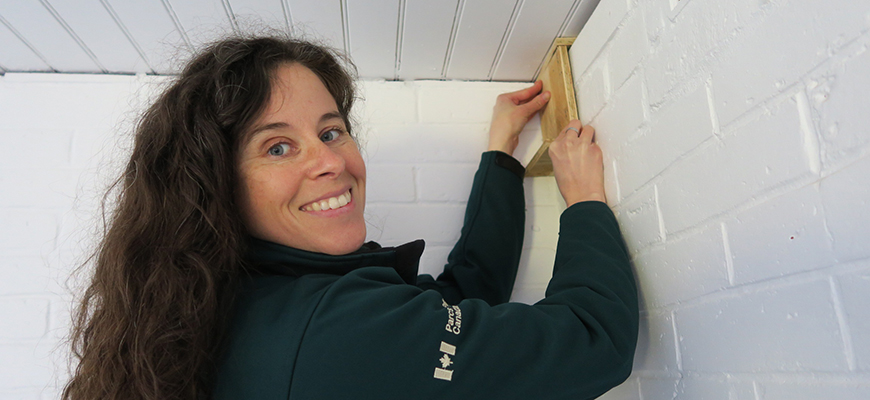
Barn swallows are creatures of habit. They often return to the same nest from one year to the next or rebuild in the same neighbourhood.
Parks Canada’s action:
We leave the mud nests in place. If we must relocate the nesting areas, we do it with great care.Action you can take:
Leave the mud nests in place, so that barn swallows can reuse them. To attract barn swallows, attach a small piece of lumber just below the eaves. The birds will use this ledge to build their nest on.
If you absolutely must remove a nest, contact local wildlife authorities about the proper way to proceed.
Learn more about barn swallows and species at risk recovery
- Date modified :